UP TO THE MINUTE
Harnessing mushrooms to upcycle construction debris
May 23, 2025 at 9:00 a.m.By Karen Edwards.
A sustainable approach to waste management.
Roofing Technology Think Tank (RT3) members traveled to the Chicago area recently to visit with Mycocycle founder and CEO Joanne Rodriguez at her company headquarters to learn more about how they are harvesting the power of mushrooms to tackle the challenge of construction debris.
Joanne shared that 11% of world greenhouse gas emissions derive from construction materials – from resource extraction to disposal. Traditional waste management methods often rely on disposal or recycling that can still be resource-intensive which is why Mycocycle is transforming the paradigm by employing nature's own recyclers — mushrooms.
“So why mushrooms?” asks Joanne. “There is a huge body of work around micro remediation as a form of bioremediation. We're not the first to do it, we're just the first to do it in an industrial application.”
Mushrooms are known for their remarkable ability to decompose organic matter, thanks to their network of mycelium — tiny thread-like structures that act as nature’s decomposers. Mycocycle taps into this biological power to upcycle debris that would otherwise be discarded.
How it started
After spending nearly 20 years in the commercial roofing industry and being tasked with leading a recycling program for the manufacturer, Joanne realized that recycling in the roofing industry was not even close. Once she turned 50, she realized she wanted to “do better” and do something about this issue so she set out on her own.
“When I went independent, I went on a quest for knowledge, as well as to beef up my skills,” explained Joanne. “I took a course from Oregon State University, and I learned about fungi and their remediative qualities.”
“When I learned about the heavy hydrocarbons that they could cycle through, just like those we find in petrochemicals and bitumens that are going into our products, I connected with a mycologist, which is a specialist in fungi, and we put a handful of spores on some off-the-shelf asphalt roof shingles, and it grew within seven days.”
Joanne formed a company and filed a patent for that process. After meeting our own Heidi J. Ellsworth in 2018, Joanne worked to secure funding and support from leading roofing industry players but was met with skepticism and doubt. Convinced that this process would work, Joanne incubated and accelerated the company in 2019 and launched through the National Renewable Energy Labs in March 2020. After receiving validation of the problem, the Covid pandemic shut everything down, slowing down her momentum.
“I started to try to find people,” said Joanne. “I'm not a scientist, I'm just curious, trying to solve a problem.” Within a year of leasing her first space, they had outgrown it. “Today we're in over 10,000 square feet. We have another 10,000 square feet we’re expanding to in Georgia, and we have many installations via our Mycontainers. The whole goal for us is to upcycle waste from the built environment.”
Upcycling old carpets
The one industry where Mycocycle has gained traction is the carpet industry. “One thing I wanted to solve was how we could upcycle or reuse the waste more effectively and how we could get greener, cleaner chemicals to do that.”
The carpet industry is seeing a lot of emerging regulations, says Joanne. “They haven't hit the roofing sector yet, but they are hitting the flooring sector very hard. Within the next three years. Things like commercial carpets must have at least 5% recycled content from their industry. It can't come from PET water bottles.”
“We're able to reduce the embodied carbon of materials by 98% for carpet specifically. We are coming from commercial carpet waste and producing a Nylon 6 replacement. Our products are competitively priced and outperform petrochemicals today. That's one of my very big points of pride that we're able to compete against virgin polymers and win. We are defining a new category of materials management.”
The process and result
The Mycocycle process begins with sorting and preparing construction waste. Materials are selected based on their compatibility with the fungi's decomposition capabilities. Once prepared, the debris is inoculated with specific strains of fungi that thrive on the chosen substrates. Over time, the fungi metabolize the waste, breaking it down into simpler compounds.
The end result is a transformed material that can be used for various applications, such as bio-based building materials, insulation or soil amendments. This innovative process not only reduces the need for landfill disposal but also creates sustainable products that can re-enter the construction cycle.
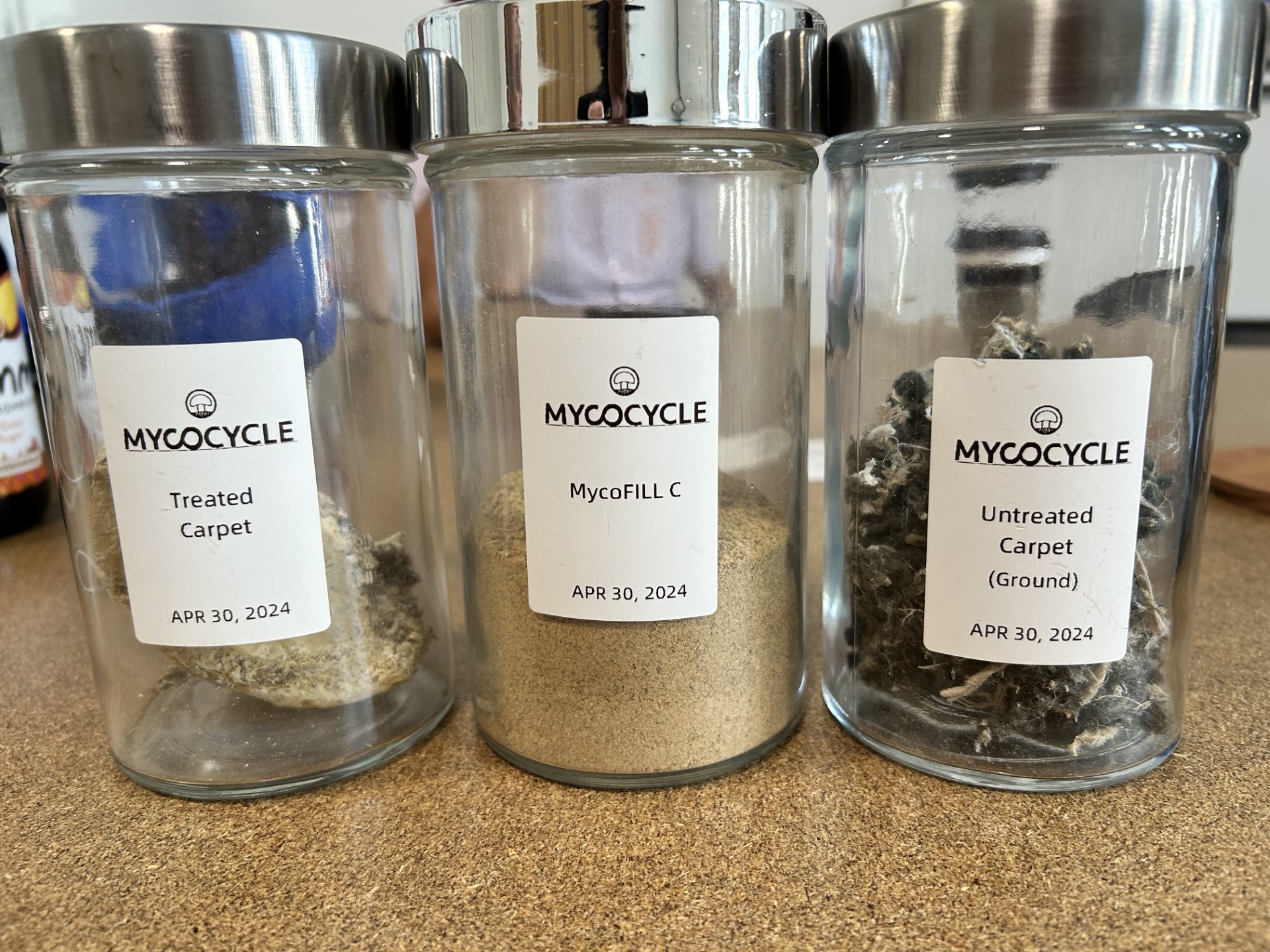
This summer an athletic field is being installed in South Carolina that will be the first carbon neutral athletic field. One of the largest suppliers of athletic turf is using MycoFILL, upcycled from old carpet, in the manufacture of their turf infill that not only keeps the field cooler and is safer for athletes, but eliminates the need for using rubber and microplastics in their manufacturing process.
Implications for the future
Mycocycle's work represents a significant step forward in sustainable waste management. By harnessing the natural capabilities of mushrooms, the company is addressing one of the construction industry's most pressing problems in an innovative and environmentally responsible way. As the technology gains traction, it has the potential to revolutionize how waste is handled across multiple industries, setting a precedent for bio-based solutions to global challenges.
In a world where sustainability is increasingly critical, Mycocycle stands as a shining example of how nature and technology can work hand in hand to create a better, greener future.
Learn more about Roofing Technology Think Tank (RT3) in their Coffee Shop Directory or visit www.rt3thinktank.com.
![]()
About Karen
Karen L. Edwards is the COO at RoofersCoffeeShop and a marketing consultant and freelance writer for the roofing industry. When she is not working, she is watching or attending sporting events, listening to music and spending time with family.

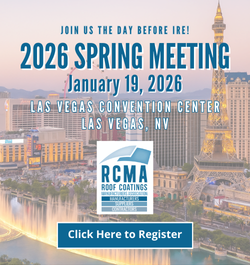










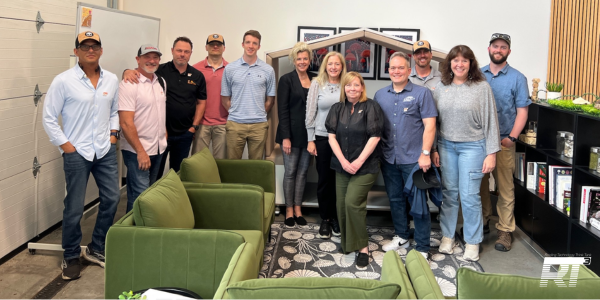
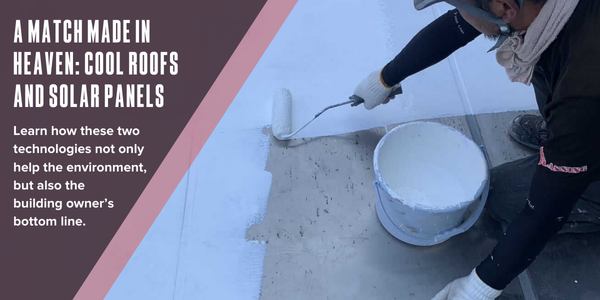
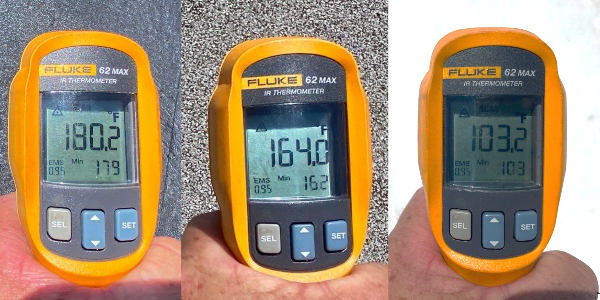
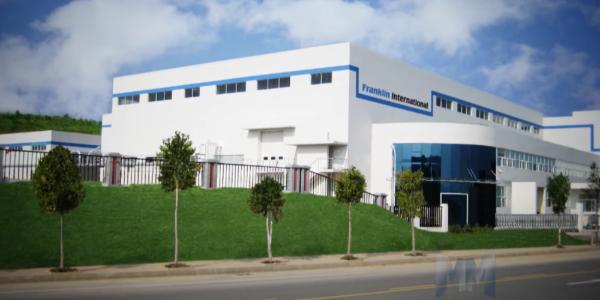

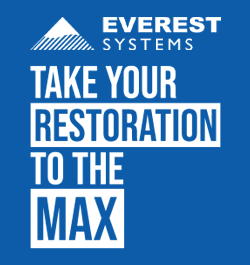



Comments
Leave a Reply
Have an account? Login to leave a comment!
Sign In